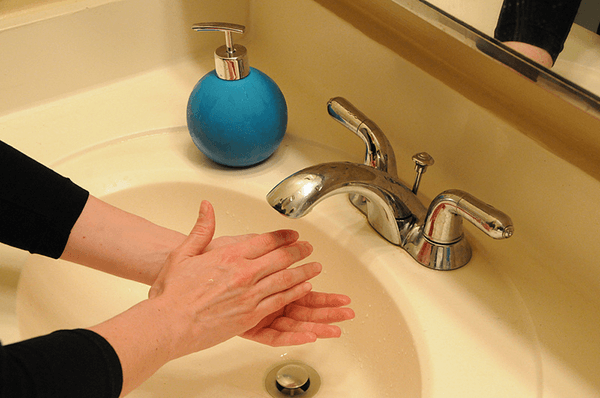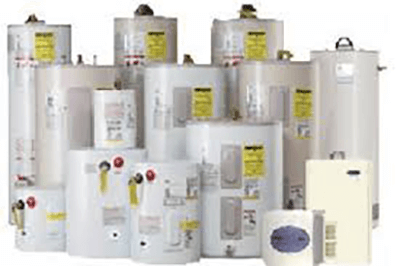Is Your Water Heater Efficient Enough?
It’s easy to take hot water for granted, as it is so thoroughly ingrained in our everyday lives. We use it to shower, wash dishes, do laundry, and assist in other daily tasks. However, have you ever given much thought to the energy your home’s water heater consumes?
Considering how a new water heater is rated for its energy efficiency and other important factors can help you make a smart choice when you decide to replace your home’s water heater. Read below what to consider when researching high efficiency water heaters.
The Energy Factor
 Each water heater is assigned an Energy Factor score, also know as its EF rating. The EF rating is determined from a standardized test wherein a heater is operated and closely monitored under ‘normal’ operating conditions for a 24-hour period. The EF rating takes several factors into account, measuring not only how much energy it takes to heat the water but also how well the water retains its heat while stored in the heater’s tank.The results are presented in terms of the unit’s EF number. The higher the EF rating, the better!
Each water heater is assigned an Energy Factor score, also know as its EF rating. The EF rating is determined from a standardized test wherein a heater is operated and closely monitored under ‘normal’ operating conditions for a 24-hour period. The EF rating takes several factors into account, measuring not only how much energy it takes to heat the water but also how well the water retains its heat while stored in the heater’s tank.The results are presented in terms of the unit’s EF number. The higher the EF rating, the better!
The First Hour Rating
The first hour rating, or FHR, is another factor to consider when you’re shopping for a new water heater. The FHR rating comes from a different standardized test which essentially determines the amount of hot water that an up-to-temperature water heater can supply during its first hour of use. The first hour rating can be thought of as a reflection of the water heater’s EF rating, the storage volume, the insulating ability of the tank, and its BTU heating input. Translation: Higher FHR ratings mean more hot water waiting for you when you get up in the morning!
Other Features to Look For In A New Water Heater
 When you’re shopping for a water heater, a unit’s EF and FHR ratings are both important factors to consider. However, there is more you should also take into account.
When you’re shopping for a water heater, a unit’s EF and FHR ratings are both important factors to consider. However, there is more you should also take into account.
The recovery rate of a tank type water heater, closely related to the EF and FHR ratings, is a measurement of how quickly your tank produces more hot water for domestic use. This is different than the first hour rating, since recovery does not take into account the hot water volume sitting in a satisfied, warm tank, ready for use. Recovery is measured in gallons-per-hour (GPH) supplied, at an increase in water temperature of 90 ¼ degrees Fahrenheit. This can be a critical number in cases where there is significant hot water usage over an extended time on a regular basis; repeated showers (think weekday mornings!), laundry loads, or dishwashing are a few things that come to mind.
High recovery water heaters typically have a higher BTU gas input rating than standard models, and in some cases may require a larger diameter flue pipe than the old unit that’s being replaced.
IMPORTANT: Before deciding to purchase a high recovery water heater, make sure that your flue pipe system is large enough to accommodate it, or that plans are made to address identified venting issues.
So if a water heater you are considering has good EF and FHR ratings, and the recovery rate is deemed sufficient, you are on the right track for a good performing replacement tank!
Capacity, or volume, is the last key item to think about if you are replacing a traditional tank-type water heater. A family of four might use around 100 gallons per day as they take showers, cook, and carry out household cleaning tasks. That does not, however, mean that they need a water heater with 100 gallons of storage. If a heater has good EF, FHR, and recovery ratings, the family should be able to use a significantly smaller tank. While 40 gallon water heaters were once the norm for many homes and families, 50 gallon tanks continue to grow in popularity. Larger size residential tanks are also available, and not uncommon.
Get Professional Advice!
When replacing an existing water heater, not all replacement units may be readily compatible with your existing plumbing, venting, or gas piping, and there are now more options to choose from than ever. We recommend that you consult a trusted, professional plumbing and heating contractor for advice on what makes the most sense for your unique situation. Obtain firm quotes and detailed information on the options you’re considering, and take the time to make an educated decision that you will feel comfortable with–now and in the future.




